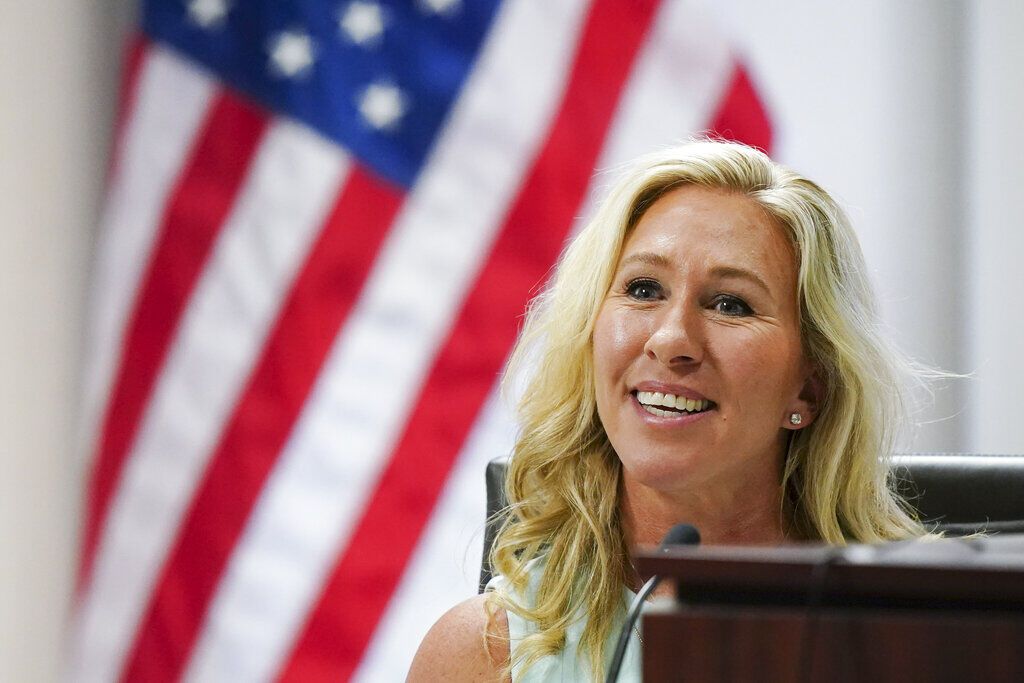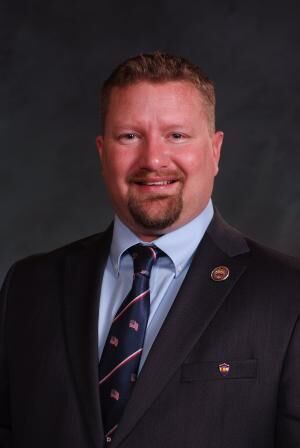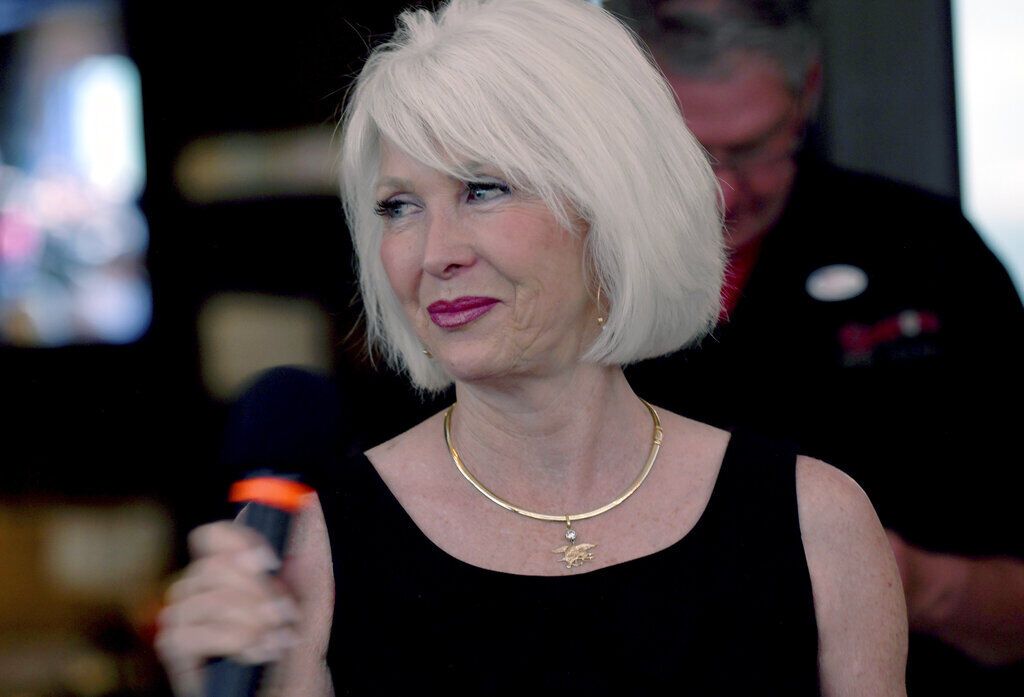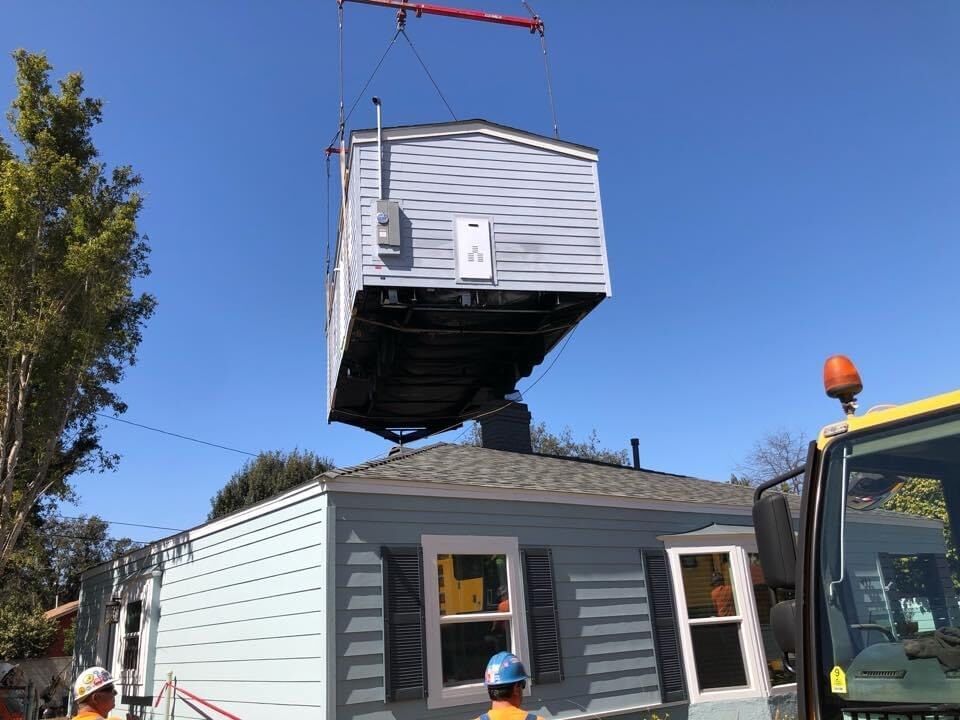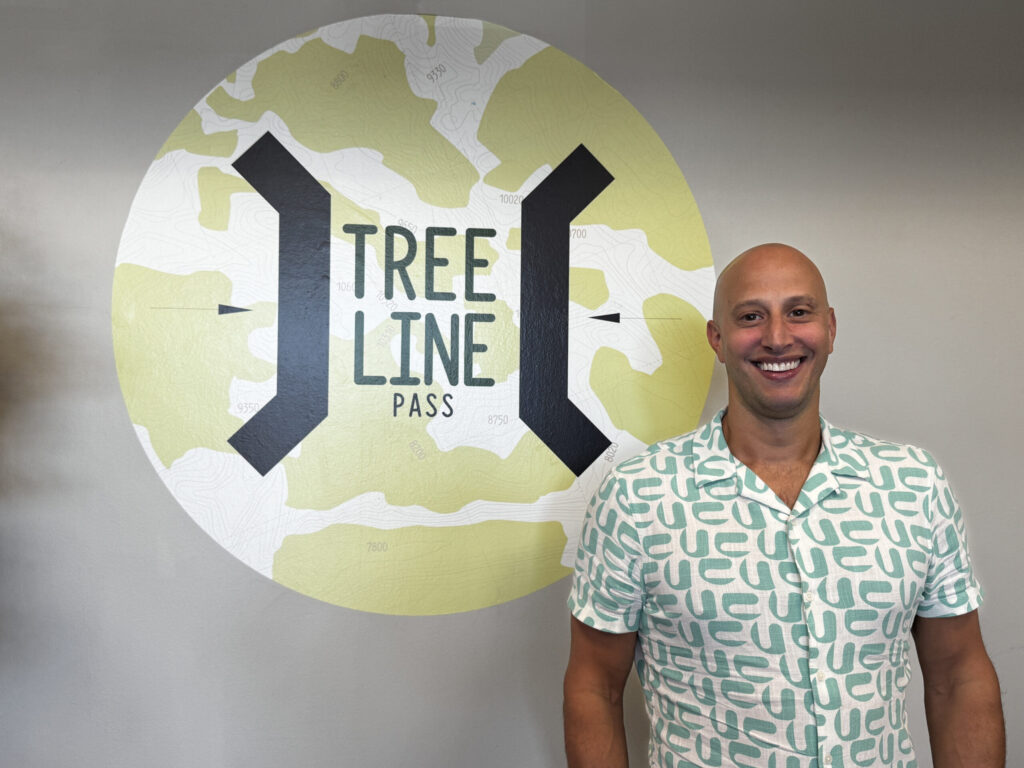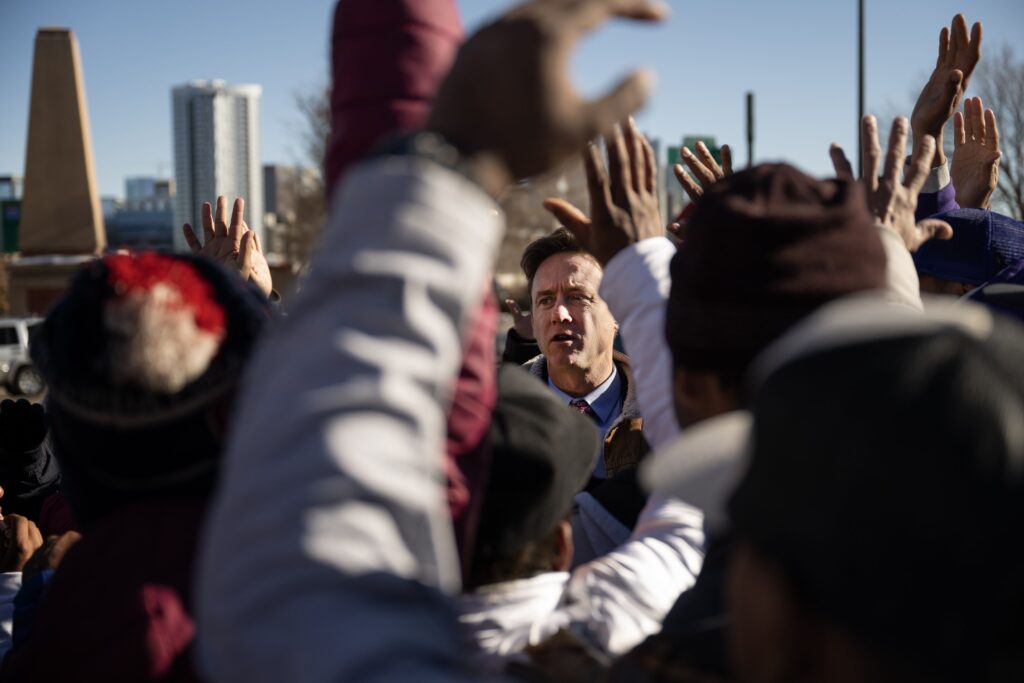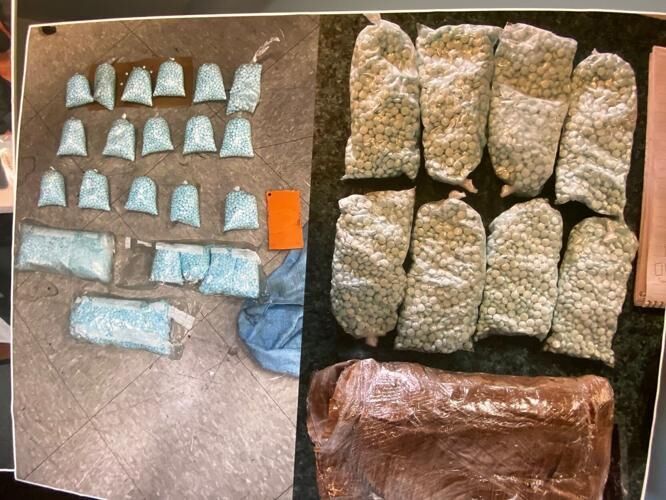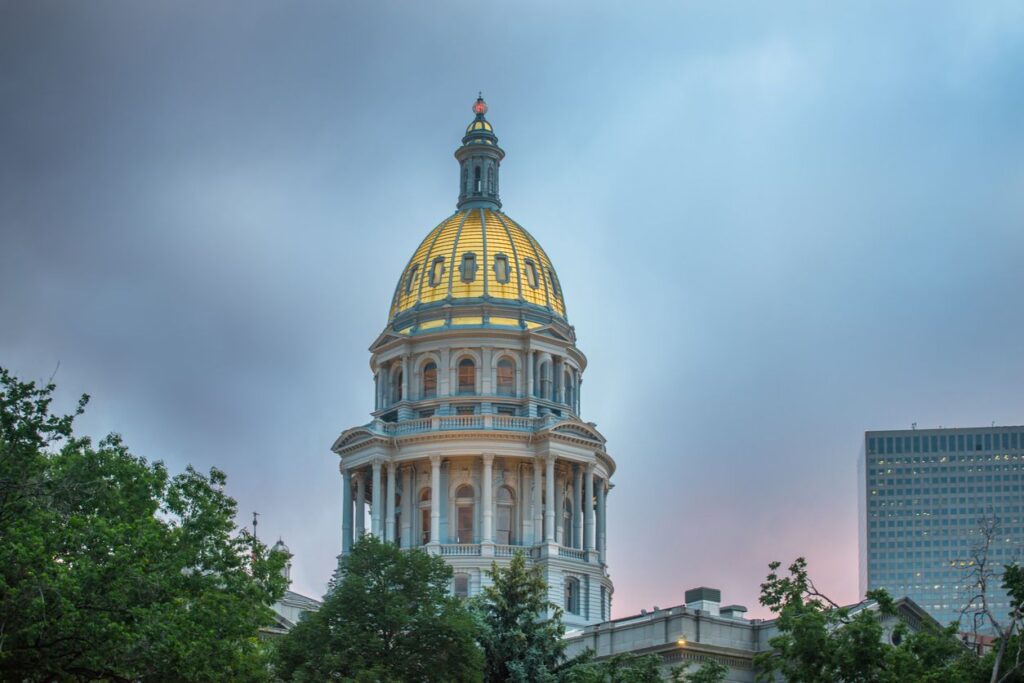Bennet, Polis roll out wilderness bill to tout public lands ahead of Outdoor Retailer show
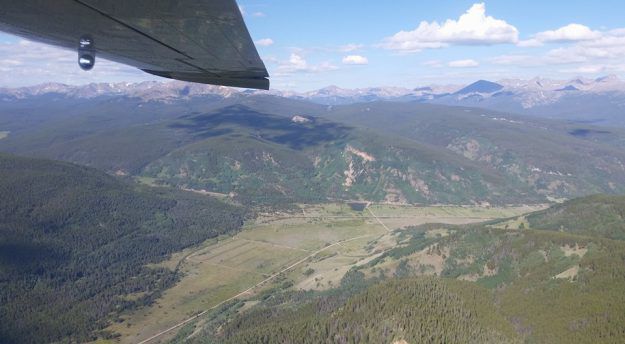
Not since December of 2014, when Republicans controlled both chambers but not the White House, has a federal wilderness bill in Colorado been approved by Congress. The climate would seem even more unfavorable these days, with the GOP now firmly in charge of Congress and the executive branch and President Donald Trump using his power to downsize national monuments.
Rather than be discouraged, Democratic lawmakers and conservation groups see this as the perfect time to forge ahead with new wilderness bills, which they did on Wednesday with the introduction of the Continental Divide Recreation, Wilderness, and Camp Hale Legacy Act.
The bill previously introduced only in the House by U.S. Rep. Jared Polis, D-Boulder, would bestow wilderness protections on 98,621 acres of federal lands in Eagle and Summit Counties. What’s new this time is the bill is simultaneously being introduced by Democratic Sen. Michael Bennet in the Senate, and it includes a new National Historical Landscape at Camp Hale.
Bennet had been working on a Senate version of the Polis bill in the fall of 2016, and then the election happened, and Trump was elected on a Republican Party platform calling for the conveyance of federally owned public lands to state control. Utah’s Republican lawmakers took that to mean going after Bears Ears and Grand-Staircase Escalante national monuments.
“Utah lost the Outdoor Retailer show in large part because they were working to dismantle their national monuments,” said Scott Braden, wilderness and public lands advocate for Conservation Colorado. “A year later we have the Outdoor Retailer show opening here in Denver, and Colorado’s legislators are proposing protections for public lands.”
The Outdoor Retailer show, after many years in Salt Lake City, kicks off Thursday in Denver. The Outdoor Industry Association puts Colorado’s annual revenues from outdoor recreation at $28 billion and growing.
Bennet, on a conference call with reporters Wednesday, says moving to further protect public lands while maintaining access and a wide variety of recreational uses just makes good economic sense – even if the political climate isn’t great for getting wilderness bills passed.
“It’s important for us to put it in so that the process can start,” Bennet said. “It’s important for us to have bills like this so that we can continue to drive a conversation here about the importance of public lands to the West. And that’s a debate that we will win for the very reason that the Outdoor Retailer show is coming to Colorado [Thursday].
“That show was essentially pushed out of Utah by ideologues who do not support the public lands in their state, and unfortunately Utah’s economy paid a price for that, and Colorado’s economy is the beneficiary of that,” Bennet added.
Republican U.S. Rep. Rob Bishop, who chairs the House Committee on Natural Resources, was one of those Utah lawmakers who pushed so hard to downsize the state’s national monuments that were expanded so dramatically by executive order under former President Obama.
Polis has yet to even get a committee hearing on his bill during previous sessions of Congress. That’s not stopping him from trying again.
“The next step in the House is to request a hearing from the Natural Resources Committee, which we intend to pursue,” Polis said, adding federal lands protection are best achieved doggedly in Congress because those protections can’t be undone by the executive branch.
“One of the reasons it’s always better to do wilderness and other forms of protections in law, in statute, is that they’re not at the whim of future administrations, so certainly presidents have the legal ability for designations using their executive authority, but the only way to establish wilderness is through congressional action,” Polis said.
Plus, Polis points out that his bill has wide-ranging local and regional support and has been pared down and forged over many years by local stakeholders who have made many compromises. The original and very controversial Hidden Gems proposal included 342,000 acres in four counties, including Pitkin and Gunnison.
“It has support from Democrats and Republicans on the ground, local governments, water districts, fire districts, small businesses, large businesses, mining companies, really a very broad coalition, because we are closest to our lands in Eagle and Summit counties and we know that this form of permanent protection will help create jobs and stability around the outdoor recreation economy in western Colorado,” Polis said.
The first-ever National Historical Landscape designation for 28,728 acres at Camp Hale has garnered support from veterans’ groups. It doesn’t restrict any mechanical access to the area, including mountain bikes or motorized, but it does limit development on lands once used by the famed 10th Mountain Division to train ski troopers for winter warfare during World War II.
“One of the basic values that I had going into this is that we wanted to make sure we didn’t reduce access in any way for motorized use, including snowmobiling and four-by-fours, and that we enhanced and protected access and use for outdoor recreationalists,” Polis said.
That has helped to build local support, but federal approval will be another story. Still, Bennet points out Hermosa Creek – backed by Republican U.S. Rep. Scott Tipton, R-Cortez, protected more than 37,000 acres at a time when Democrats were reeling in Congress.
“[The Continental Divide] bill is written by people on the ground who understand the land the best, and that was how we were able to get the Hermosa Creek Watershed Bill passed a few years ago even during this crazy – well, not quite this crazy moment – but at a moment when people were objecting to wilderness bills,” Bennet said.
Conservation Colorado’s Braden echoed it’s all about the long view.
“We’re going to get this one done. It might not be today, this week or next week, but keep moving forward and eventually these things will happen,” Braden said. “Even when times are bad and the politics are daunting, you can’t just go home in despair. You have to fight, you have to have a proactive vision, and that’s what this is.”



